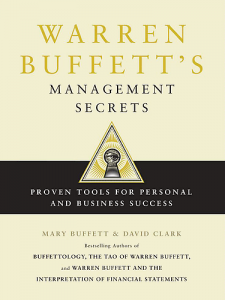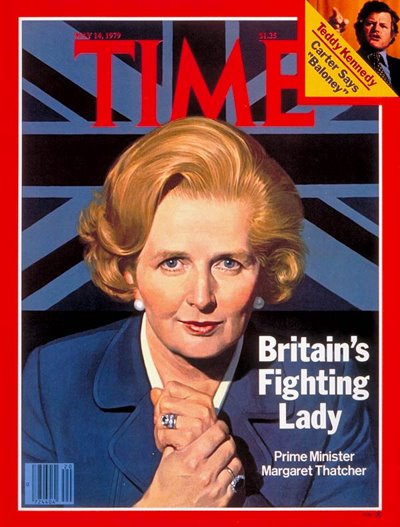This is a video based on the Dr. Seuss book, complemented by Air France posters from the 1950s. C’est magnifique!
 There are five segments to Warren Buffett’s Management Principles:
There are five segments to Warren Buffett’s Management Principles:
4. Motivate Your Work Force: Management motivational skills that Warren uses, you need to adapt what Carnegie has taught.
Make A Good First Impression: you should begin the encounter in a friendly way. Warren knows that first encounter should be friendly, and be light. You should start with your encounters in a friendly way, because it is the only way that pays.
 The Power of Praise: William James said that the need to be appreciated is essential. Charles Schwab was the first superstar manager. What made Charles Schwab a revered manager? Charles Schwab was encouraging! You need to arouse the greatest enthusiasm, you need to appreciate and encourage. You should give people the incentive to work. Schwab noted that Andrew Carnegie always praised his employees, and was a cheerleader, and would praise his managers in private. If you praise them for the little things, they will give them better things down the line.
The Power of Praise: William James said that the need to be appreciated is essential. Charles Schwab was the first superstar manager. What made Charles Schwab a revered manager? Charles Schwab was encouraging! You need to arouse the greatest enthusiasm, you need to appreciate and encourage. You should give people the incentive to work. Schwab noted that Andrew Carnegie always praised his employees, and was a cheerleader, and would praise his managers in private. If you praise them for the little things, they will give them better things down the line.
 Give Your Employees a Fine Reputation To Live Up To: the manager worked with a longtime trusted employee, and resulting in decline of productivity. Never miss an opportunity to remind your managers about their quality contributions. You should build up the expected reputation of your managers. If you play up the importance of giving people a fine reputation to live up to, you will motivate them. So Warren has some advice for Bono: don’t appeal to the conscience of American on African aid. If you appeal to a sense of right or wrong, it will not work, because we do not want to feel guilty. Bono should speak to America’s sense of greatness. America put a man on the moon, we should turn to America to save Africa. If you give a person a fine reputation to live up to, it is more effective. Using guilt is not productive.
Give Your Employees a Fine Reputation To Live Up To: the manager worked with a longtime trusted employee, and resulting in decline of productivity. Never miss an opportunity to remind your managers about their quality contributions. You should build up the expected reputation of your managers. If you play up the importance of giving people a fine reputation to live up to, you will motivate them. So Warren has some advice for Bono: don’t appeal to the conscience of American on African aid. If you appeal to a sense of right or wrong, it will not work, because we do not want to feel guilty. Bono should speak to America’s sense of greatness. America put a man on the moon, we should turn to America to save Africa. If you give a person a fine reputation to live up to, it is more effective. Using guilt is not productive.
The Dangers of Criticism: using criticism is ineffective because it arouses resentment. Uninvited criticism is something we hate to hear. We should not provide uninvited criticism of others. Instead of critcizing managers, you need to pay attention to what went wrong, and learn from it. As long as managers are making intelligent risks. We all make mistakes, and that you should learn from your errors but not make such a mistake subsequently.
Art Spielgelman’s satire of the Holocaust has been a best-seller, because it conveys emotionally, and effectively what other writers have not about the jewish experience during, and post World War II. Used in an academic context, Maus has framed the debate on power, and struggle during that period. It uses a head-fake approach to convey its message, characterising the Nazis as cats, and the Jewish community as rats…
 On the Origin’s of Her Philosophy:
On the Origin’s of Her Philosophy:
Her father was a grocery store owner. She was a scientist who had a keen eye for the small business owner’s capacity to deal with the tides of demand and supply. Individuals should be free to maximize their own ingenuity. The free market is pure, effective and should be the dominant force in any society. The private sector is the most appropriate source of economic prosperity. Economics is Thatcher’s chief concern during the early stages of her leadership.
On British Statism:
Since World War II, Britain has entrenched socialist programs too extensively. The Labour Party had developed a democratic socialist philosophy, which stood for the Third Way between European collectivism and American Capitalism. It was not working in 1979 and never really did. Socialism had weakened the UK systematically. Britain’s economic world dominance has declined through out the post-war. Britain has been the economic loser: sick man of Europe during this period. Jobs, industries have moved overseas. Reversing this trend would be Thatcher’s goal in office. Scotland should not undertake any form of devolution. Any relinquished power from London will inevitably lead down the path to political secession and economic upheaval.
 On Civil Service:
On Civil Service:
Thatcher believed in massive civil service reform. The civil service was 780,000, bloated with Labour Party patronage and needing to be reduced. First, she implemented a stop order on new hiring. She had some problems with permanent secretaries whom she felt were attempting to resist change.
On the European Community:
The European Union should be handled with suspicion. France and Germany have a close relationship. They stand to gain the most from British financial contributions. Germany stands to make enormous returns in international respectability. France stands to protect itself from German aggression. Thatcher fears that the EU will standardize European communities and decrease cultural diversity. The EC/EU should maximize individual rights not diminish them.
 Thatcher upon taking office, called for drastic reductions in British budgetary contributions to the EC. The major issue with the EC and German President Schmidt was the British budge issue. The Agricultural subsidies in France were unfair to the British farmer, for example. Britain has unreasonably high tariffs but still has to pay higher levels of budgetary contributions. Thatcher did not see the economic benefits of the EU during the Labour Party era. Thatcher puts Britain’s interests ahead of the EU, every single time. She stands to prevent the EU from moving forward. Thatcher did not commit sterling to the Exchange Rate Mechanism. Rhodesian legal independence was achieved under Thatcher’s leadership.
Thatcher upon taking office, called for drastic reductions in British budgetary contributions to the EC. The major issue with the EC and German President Schmidt was the British budge issue. The Agricultural subsidies in France were unfair to the British farmer, for example. Britain has unreasonably high tariffs but still has to pay higher levels of budgetary contributions. Thatcher did not see the economic benefits of the EU during the Labour Party era. Thatcher puts Britain’s interests ahead of the EU, every single time. She stands to prevent the EU from moving forward. Thatcher did not commit sterling to the Exchange Rate Mechanism. Rhodesian legal independence was achieved under Thatcher’s leadership.